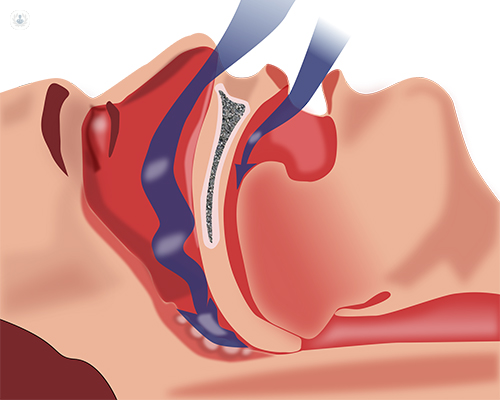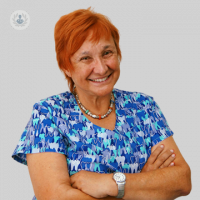Sleep apnea, how to tell if you snore
Written by:
What are apnea, hypopnea and snoring?
According to the dictionary of the Royal Academy apnea is the lack of air intake and is what divers do. That apnea in some people we managed to close the airway completely at bedtime. Because our jaw is relaxed just like all the muscles in our body are relaxed and if you sleep on your back the jaw goes back. In a normal person that backward movement of the jaw produces a decrease in the airway, but does not close it completely, it can sleep perfectly. But there are people that that airway closes completely and is what is called sleep apnea, or partially closes and is what is called hypopnea. The roncopatía is the vibration of the soft tissues of the soft palate and the surrounding tissues. It is as if we take air, very much, and we release it with great force but we close our lips. What happens on the lips? As they vibrate, that vibration is the roncopatía. Small apneas are normal. But when that total apnea goes over ten seconds it is considered pathological.
How can I know if I have apnea?
Before the one who snored, he snored and that's it, but he did not know anymore. Today there are absolutely objective tests such as polysomnography or amneolin to do at home. One you have to sleep in the hospital and another you can do at home in which they control a series of parameters of your body.

But if you have not done any of those tests, you have to know that the apnea normally occurs with a drowsiness almost continuous, tiredness, reluctance. This is in adults because in children it is curious that it studies with the opposite, with hyperactivity. Another thing is that in the morning you wake up and your pajamas are completely sweaty, the bed is discarded, because when you have a prolonged apnea your brain wakes you up, makes you move and you spend the night agitated on one side and the other.
And, the children, he studies with drowsiness; a very clear question is whether from school to your house in the car you fall asleep, that child has to be given objective tests because while you have apnea your brain is not oxygenating, and may be behind school failures, it is behind many car accidents. And who does not know someone who, very young with 45 or 50 years old has had a heart attack while being healthy, worried about his health. Now you are seeing that these young infarcts and those brain hemorrhages, behind many of them there is an apnea.
What treatments does apnea have?
In dentists, in dental consultations we offer these, which are called SAMs (mandibular advancement system) in which at the time of closing forces the jaw forward. There are several systems in the market. On the other hand is the CEPAP, which injects air under pressure, which although the airway is closed passes. There is, that puts on the nose, or are masks for mouth breathers. But really the only curative treatment is orthognathic surgery, in which we advance the jaws and we can see how in this patient the airway that was very small has increased a lot. And these patients, for life, will not need any other type of treatment.


